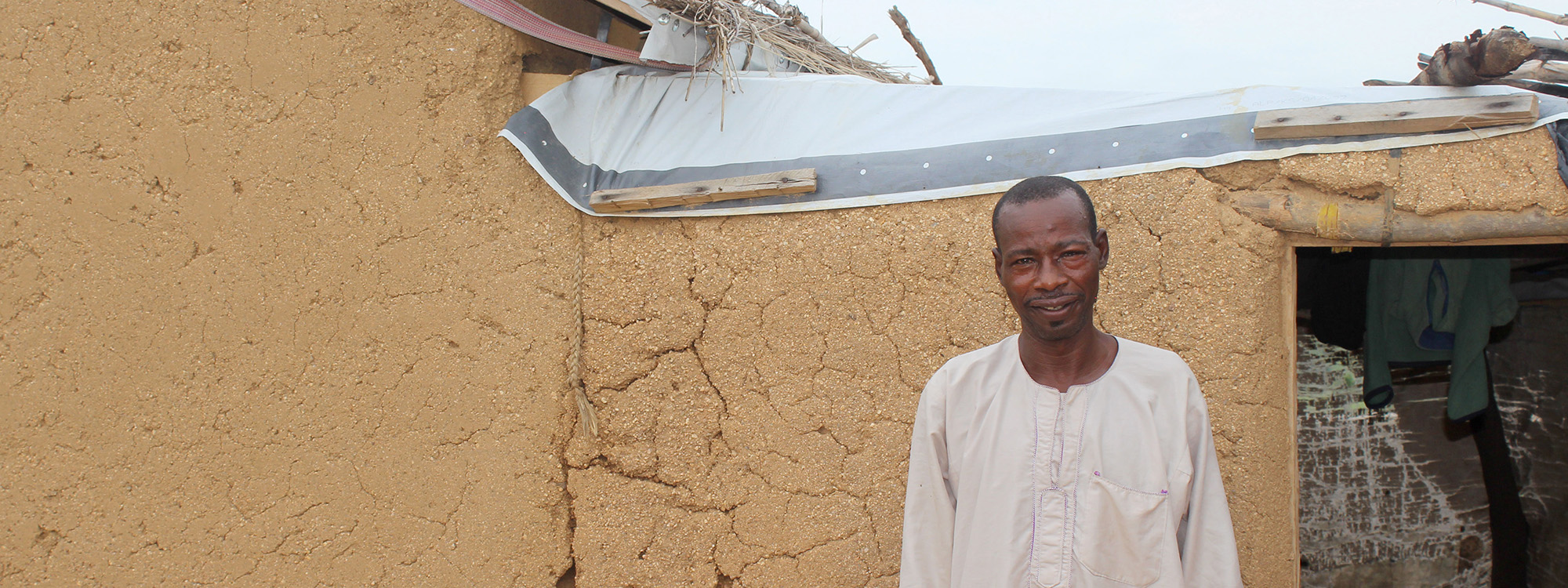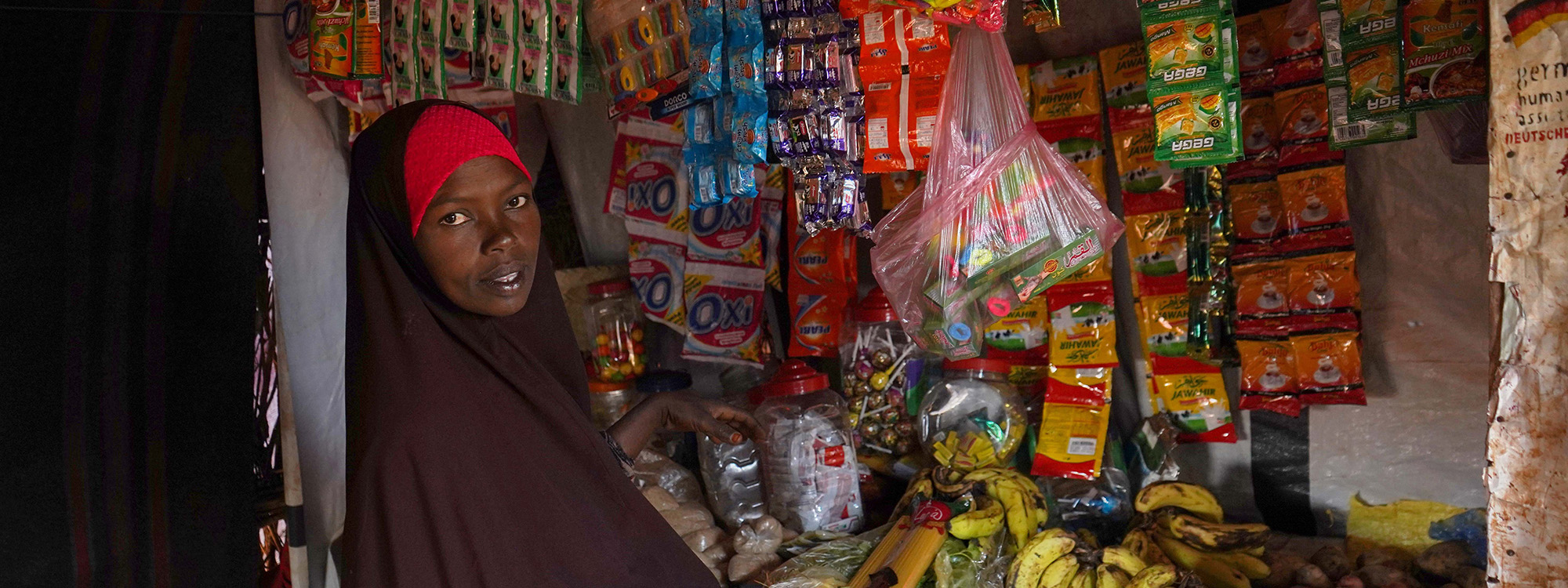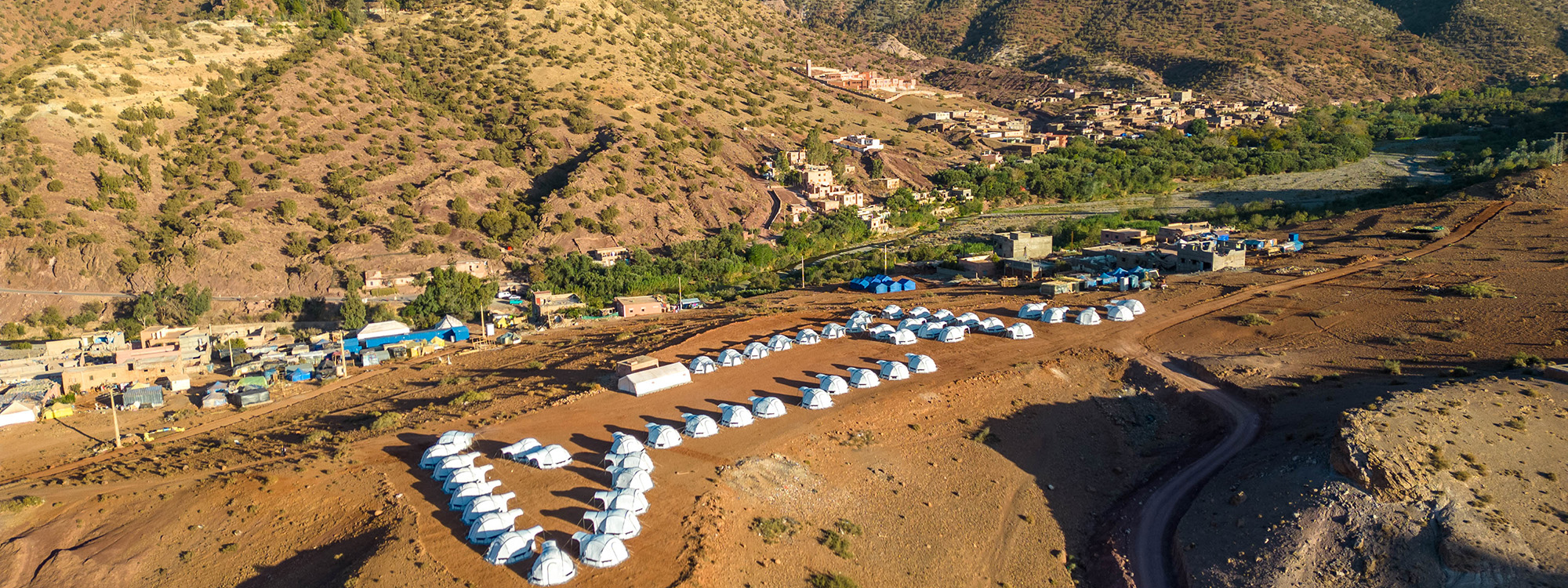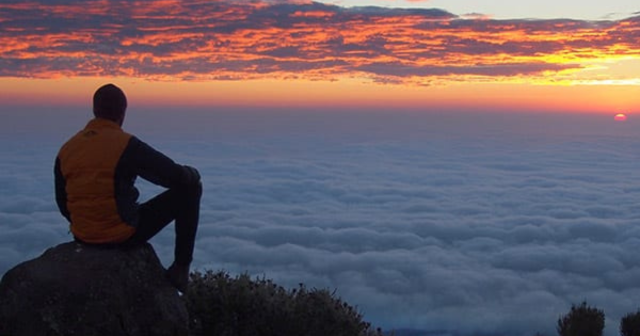
Disasters & Conflicts, News, Stories
Voices of the forgotten crises
When a big disaster strikes, its impact rightly grabs the headlines. But what happens when people are impacted by conflict or disaster for years?
After the first flurry of attention, conflicts and disasters often disappear from the news. But while the eyes of the world turn elsewhere, for people impacted the nightmare continues.
At ShelterBox we support those who have lost their homes after disaster and conflict. This includes those who can be displaced for years. In this blog we’re sharing some of the forgotten crises we’re helping with, and the voices of those impacted.
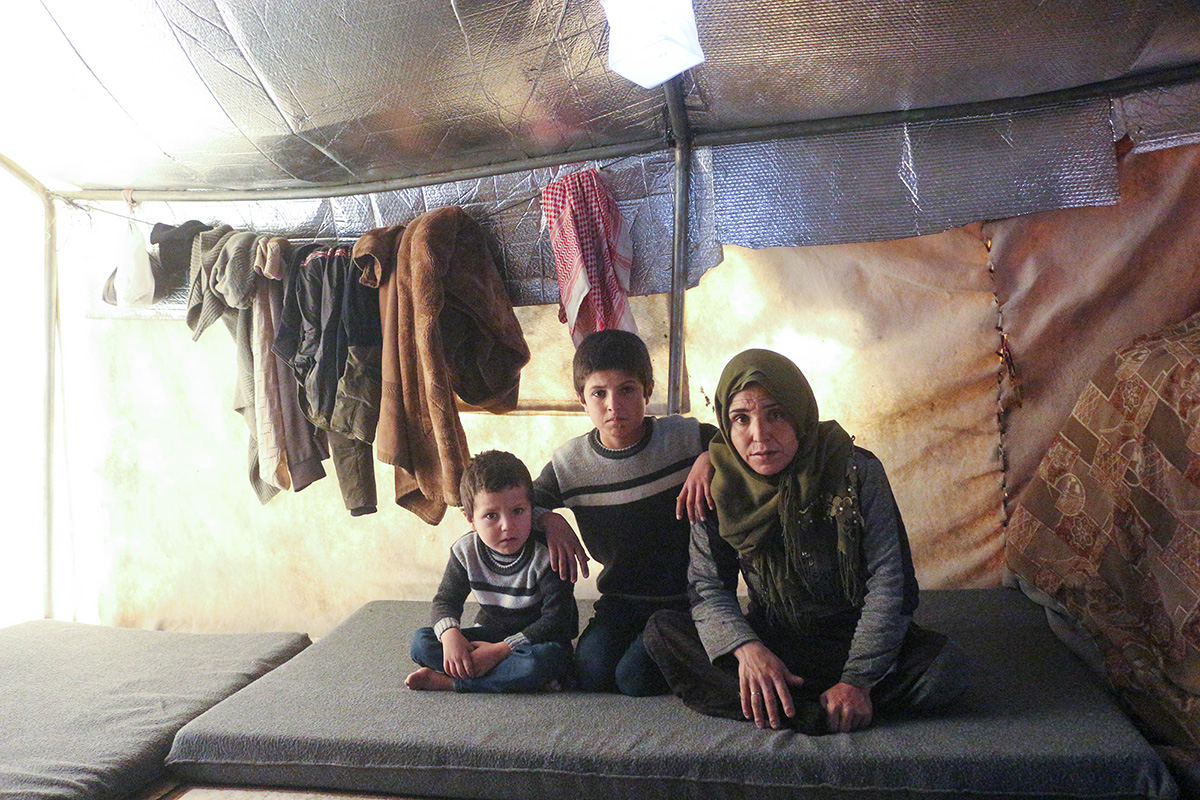
In 2011, peaceful protests in Syria escalated into a brutal conflict. After 13 years, over half the population of pre-war Syria has been forced to flee their homes. Nearly 7 million people have been displaced within Syria itself. Families have moved again and again to escape the violence. Many children only remember a Syria ripped apart by war. Costs of basic items have soared, and there have been outbreaks of disease.
This difficult situation was made even worse in February 2023. Devastating earthquakes killed nearly 6,000 people in Syria. Homes and shelters were destroyed, and hardship increased.
Syria
ShelterBox have been working in Syria since 2012. In that time we have supported many people who have lost everything in the ongoing conflict.
Fatima and her family had been in a displacement camp for three years when she met our partner ReliefAid. The family had travelled there from a previous displacement camp. Fatima remembered the day they were forced from their home.
“We left our house because of the bombing and the planes. The planes were throwing barrel bombs on us. We eventually left and came here.”
Fatima’s family was one of the poorest in the camp. She was very concerned about how her children would cope in the freezing Syrian winter. The family did not have enough warm clothes for them all.
“I only have one set of children’s clothes. We wait for it to dry to wear it, when it dries, he wears it, but if it does not dry, he remains without clothes, for two days he slept without clothes and was vomiting all night, I can’t do anything, these clothes are waiting for them to dry to put them on.”
ShelterBox and ReliefAid supported Fatima and her family with warm clothes, a carpet for their tent, a mattress and hygiene items. Fatima describer her children’s reaction. “When they got the clothes, they were happy, and I felt very happy. You helped us after we were displaced, and you made our children very happy.”
Although we were able to help Fatima and her family, conditions in the displacement camps are still difficult. And there are many more people still in desperate need of shelter and other items.
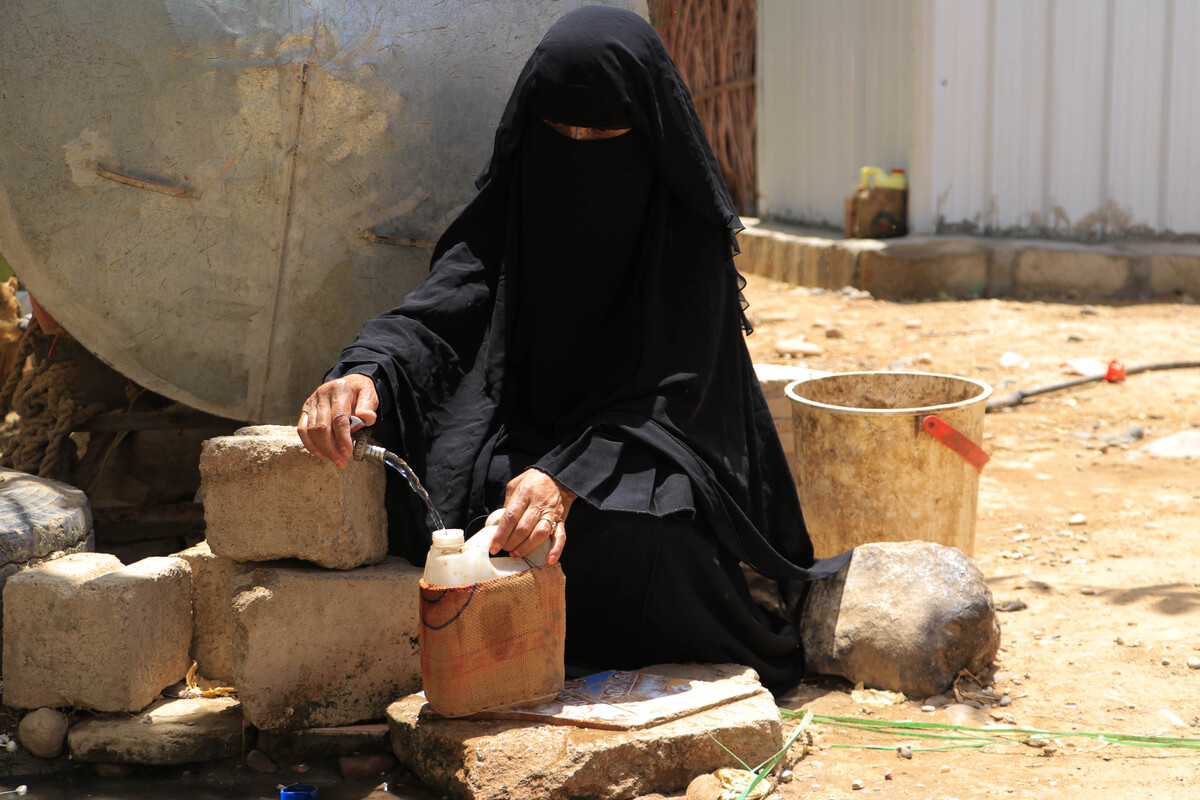
Yemen is another country that has been devastated by years of conflict. The Government of Yemen and the non-state group Ansarullah, also known as the Houthis, have been fighting for control of the country since 2014. The violence has forced over 4.5 million people from their homes. The average time for people to be displaced is eight years. Many have been forced to move multiple times. The climate in Yemen is very harsh. Those without shelter face very difficult conditions.
Some of the highest unmet shelter needs are in Marib governate. It hosts the highest number of displaced people in Yemen. ShelterBox have been working in Marib to support some of the people displaced.
Dawla’s home was destroyed in the conflict in Yemen. She and her family were forced to move three times to find a camp that felt safe. Dawla reflected on the many moves she had to make.
“We first felt sad about the separation of our homes, our farms, and our land in which we were born and raised, and our displacement to a land whose atmosphere and people we are not accustomed to, then our lives got worse when we were displaced for the second time, leaving everything that we started to collect after the first displacement of furniture and living necessities.”
Dawla was left to support her family alone when her husband died. She also had to cope with the stress of displacement while being unwell. She had recent heart surgery and was advised by doctors to avoid stress. “The doctor who operated on me always advised me to stay away from anxiety and stress because of its damage to the heart, and whenever wind or rain came, I would get nervous and worry about my daughter’s children getting sick.”
ShelterBox working with BCHR were able to support Dawla with an iron net shelter. These are more durable shelters better able to withstand Yemen’s harsh climate. They can also provide a longer-term solution for people who will not be able to return home for some time. Of the shelter Dawla said, “A beautiful feeling, we felt safe for the first time, because we will have a shelter from rain, wind and cold, and this is what we suffer most from.”
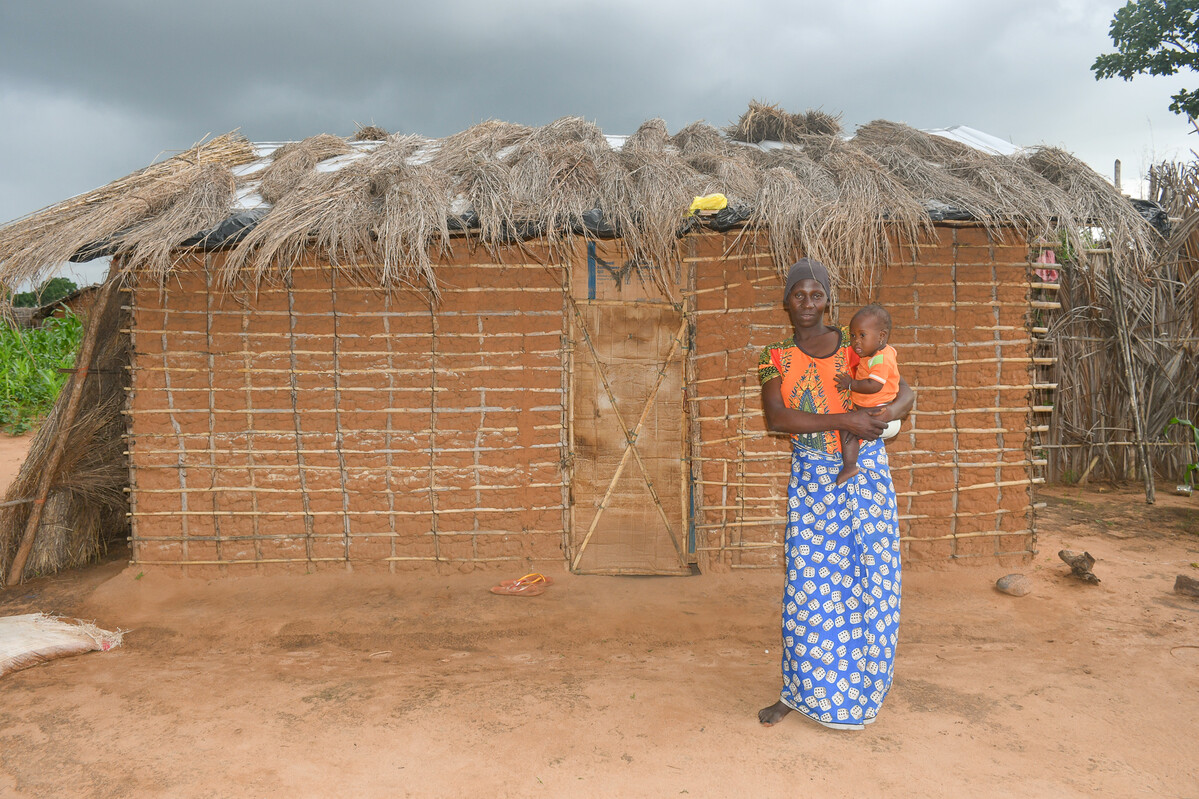
Mozambique
Mozambique is one of the most unequal countries in sub-Saharan Africa. Extremely high levels of poverty led to a large amount of social tension. This tension has fuelled violent insurgent attacks by the group Ahlu Sunna Wal Jama (ASWJ) since 2017. Thousands of civilians have been caught up in the violence.
Although originally focused on the Cabo Delgado region, attacks have now spread into neighbouring provinces. As a result hundreds of thousands of people have been forced from their homes. Some have returned home simply because they were unable to find any land or help elsewhere. When people return home they often have nothing. Their homes and previous livelihoods have been destroyed. The threat of violence is also still there. Many more people remain displaced in northern Mozambique.
When violent insurgents attacked her village, Sifa was forced to flee with her children. “When the insurgents started shooting, [killed] people and burning houses, we fled into the bush to a nearby village”. Unfortunately Sifa had to escape without her husband, and does not know what happened to him. “I ran away without my husband. I fled to one side, to this day I don’t know where he is… after hiding in the bush, I went back to my village to see the situation in my house. When I arrived everything was burnt, I could not [salvage] anything.”
The journey to the displacement camp was very arduous for Sifa. Heavily pregnant when she fled her village, Sifa gave birth in the bush without medical assistance. Now in camp, Sifa is frustrated by the lack of opportunities to grow crops and help feed her family.
ShelterBox supported Sifa with a shelter kit so she could create a roof for her home. “Last week we received tarpaulins, saws, hoes and more. Those were very important things for us, because our houses were covered only with dry grass which did not protect us when it rained. Now what we need most are mosquito nets, mats, and other [household] items.
The situation in Mozambique remains desperate for thousands of people.
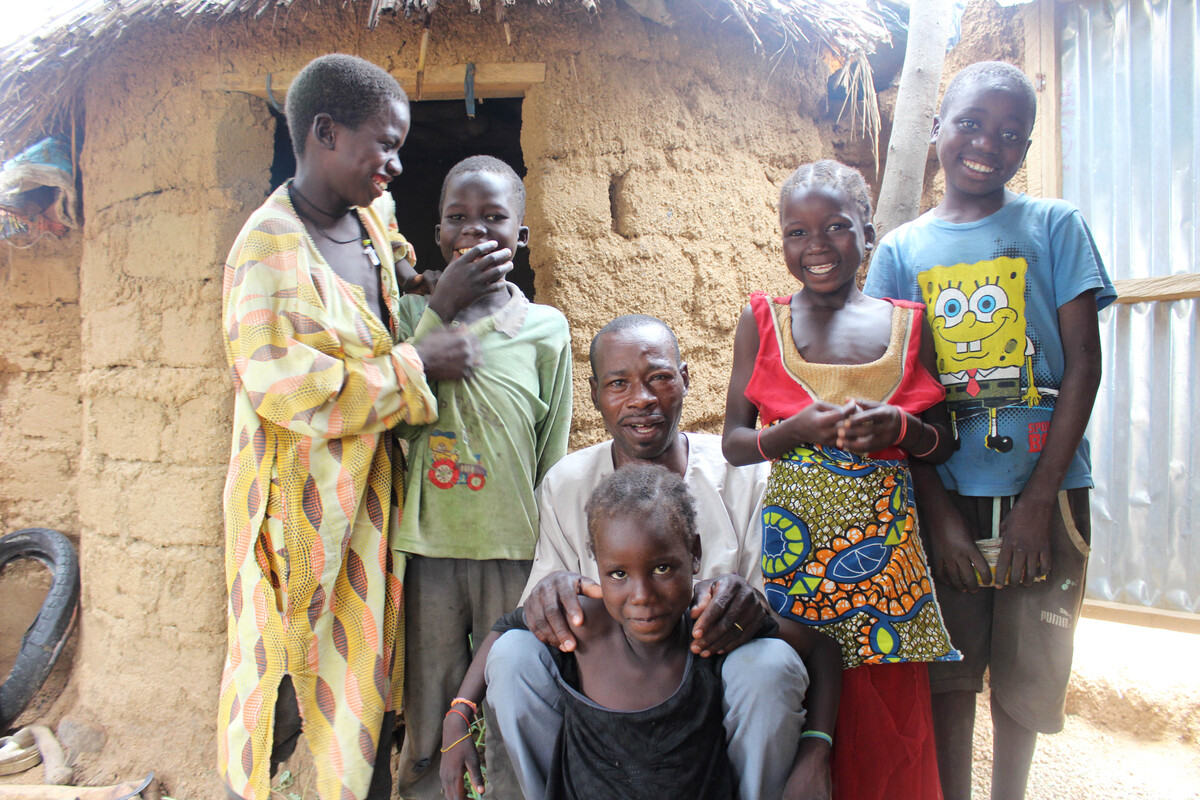
Cameroon
Many issues have led to a complex crisis in the north of Cameroon. Violent attacks by Boko Haram in neighbouring Nigeria have caused refugees to flee into northern Cameroon. The country has also been impacted by environmental problems. There has been flooding, and the shrinking of Lake Chad at Cameroon’s northern border. There are also high levels of poverty and a lack of natural resources. These problems have led to over 450,000 people displaced within Cameroon. There are also over 100,000 refugees from Nigeria. Minawao Camp was set up in 2013 to house 32,000 refugees. That number has now doubled. Many others are living in host communities.
Jean and his family faced back-to-back disasters that forced them from their home. The first was catastrophic flooding. Soon afterwards the village they had fled to was attacked by Boko Haram.
“My house was quite solid, but unfortunately my village was located near a river. In the dry season we’re lucky not to run out of water, but in the rainy season it’s the opposite. The ground lets the water seep in, and the wind and rain destroy everything. Dozens of houses were destroyed, including mine. So, I left and where I settled we were attacked by Boko-Haram. I didn’t even have time to rebuild my life before I was forced to abandon everything again.’’
As well as his home, Jean also lost his livelihood as the floods washed away his crops. Moving to a new community meant a new start for the family but it was far from easy. They at first had no shelter or toilet facilities. Jean built his family a shelter, although the harsh environment made this difficult. “This house you see here was built twice. I built a mud house and put millet stalks on the roof. It lasted a few months, but the violence of the sun combined with that of the winds toppled my roof. We were forced to occupy only part of the house.’’
Jean received a roof rehabilitation kit from ShelterBox. This allowed him to repair the roof of his shelter. He now plans to expand it to create separate rooms for his older children. “I don’t even know how to describe the emotions I felt that day. I was so happy to receive these items, because I was more in need than ever and had no money left to invest in the building site. However, after receiving this assistance to rehabilitate my roof, I went into debt to improve my shelter and buy additional battens because two were not enough. I received slats, a tarpaulin and nails. I used them to change my roof and right now we’re in the rainy season and I haven’t had any water leaks yet.”
Although very happy with his improved home, Jean still worries about a lack of resources in his new village, particularly water. He also wants his children to be able to go to school to have an improved life to his.
ShelterBox has been working in Cameroon since 2015.
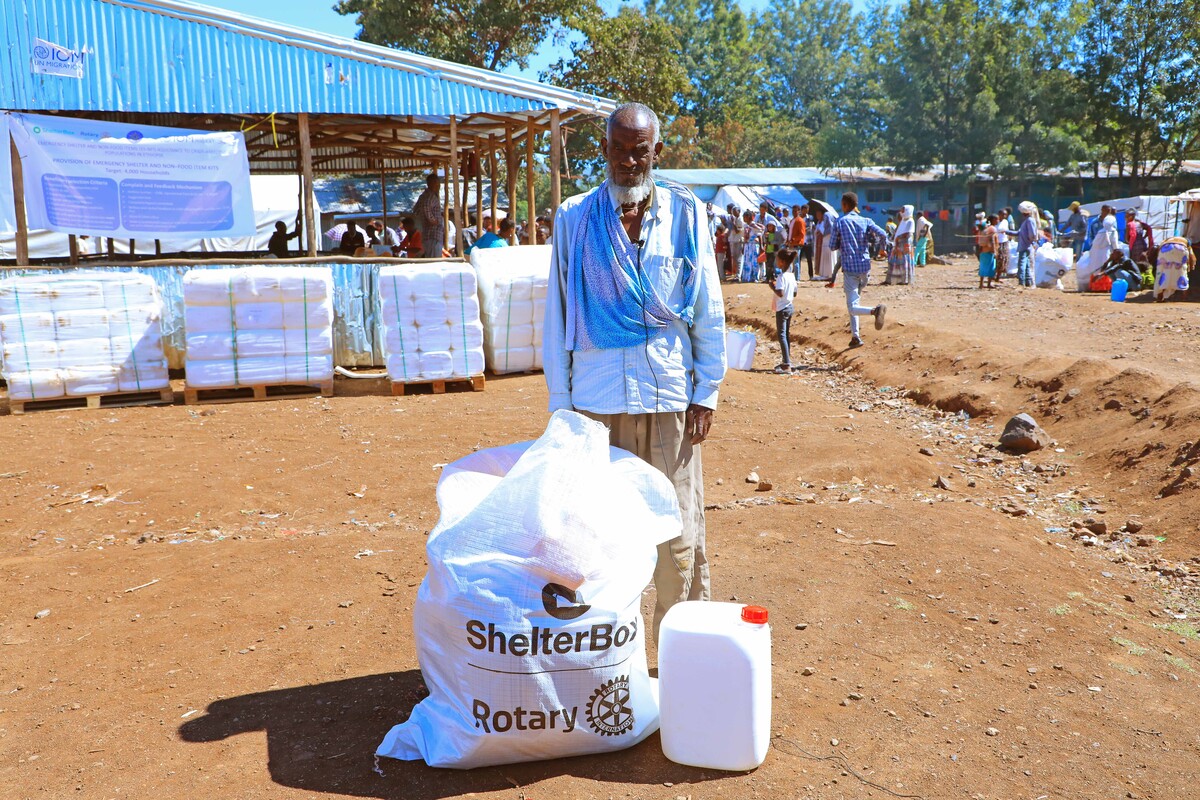
Ethiopia
Ethiopia is also in the grip of a complex crisis. Long standing internal conflict, separatist movements, and violence against the many distinct ethnic groups in the country have caused hundreds of thousands of people to be displaced. There are concerns that these clashes could continue to escalate. The UN have also warned that genocide is present and growing in some areas of the country.
As well as conflict, Ethiopia has also been severely affected by drought. There has been four consecutive failed rainy reasons. This has caused severe food shortages. While rain arrived in 2023, it has fallen on drought-hardened ground. This has led to flash-flooding, displacing over 600,000 people. Over four million people have been forced to leave their homes in the country. Hardship is widespread.
Abrehaley was forced from his home by violence in the Tigray region of Ethiopia. He also left behind his successful farming business. His journey to a displacement camp was filled with traumatic experiences.
“I was living as a farmer before the conflict, living in good economic condition but since the conflict, things have changed, and life has been hard. I come from a small village/town and when the war erupted, we were forced to leave our home and suffered a lot on the route here. When passing a river, I witnessed 66 civilians being killed. I am safe by a miracle.”
He added, “The biggest concern was fear of death and torture by those involved in the conflict and we have stayed hiding for many days on the way to come here on foot. I arrived at this camp in February 2020. Since then, we have been living by supporting each other but having food is a constant struggle.”
Now in the camp, Abrehaley worried about his family. They had left all their possessions behind. “It has had a huge impact, we did not even bring any grains for food, clothes or any of our other belongings. Thanks to humanitarian organisations we can live and get support in terms of our resources, but we have malnutrition cases. I am an old man and stay at home most of the time, but my children go to school.”
ShelterBox and IOM supported Abrehaley with tarpaulins, rope, mosquito nets and household items. Of this Abrehaley said, “The support is huge and very good. I feel very happy, and it is a big thing for me. All the materials are very useable and important especially the jerrycan and plastic sheets. I am going to use the materials to renew my house and wear the blanket to protect from the cold evenings. I will renovate my house/shelter roofing and change the old wall plastic sheets with the new ones.”
The climate crisis is having an impact on countries such as Ethiopia. This is fuelling displacement alongside conflict.
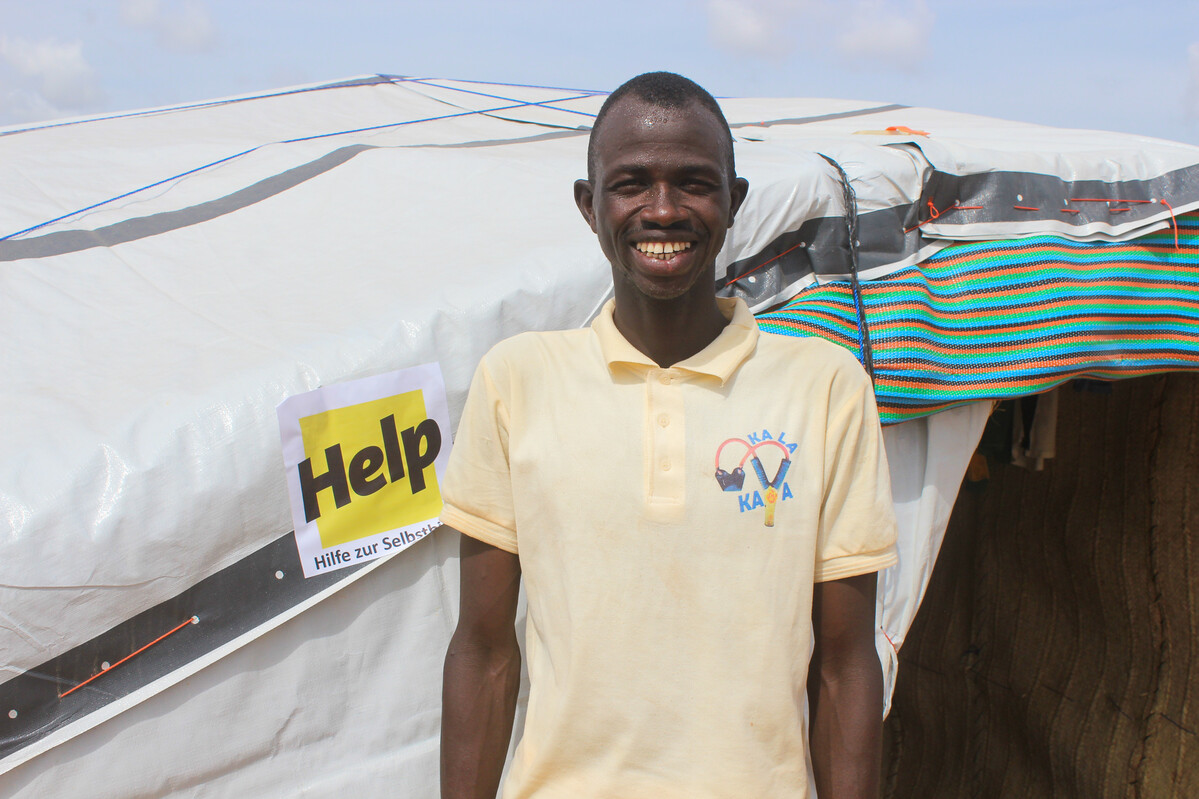
Burkina Faso
This crisis in Burkina Faso achieved two very unfortunate distinctions in 2023. It was named by the Norwegian Refugee Council as the world’s most neglected crisis. And Burkina Faso took over Afghanistan as having the highest number of people killed by violent extremism in the world.
Militant groups have spread violence in the country, and since 2020 Jihadist groups have been fighting over ideological differences. Attacks on schools, hospitals and military groups are common. As a result of the violence over 2 million people in Burkina Faso have been forced from their homes. All areas of the country are impacted to some degree by the crisis.
Sayouba had a good life in his old village in Burkina Faso. He farmed, raised livestock and panned for gold. However, he was forced to leave his village.
“Life was good there before the security crisis.… But when the crisis hit, we could no longer move around freely and that is why we left [our village].”
Sayouba and his family walked almost 100 miles to get to the displacement camp where they now live. He recalled: “To transport the children, we negotiated with friends who had carts while we followed on foot. When we first arrived eight months ago, life was difficult.”
Now in the camp, Sayouba is unable to support his family as he did before. “Having lost our jobs, we no longer work. It is our women who manage to go to the city and do daily work to earn a little money to support their families. The children stay on the sites and organise games among themselves.”
“The conflict has had a negative impact on our income because we can no longer cultivate. We no longer have any cultivable land. In addition, the gold panning sites are inaccessible.”
ShelterBox working with HELP supported Sayouba with a Sahelian tent. This emergency shelter is made from local materials. It is a more durable structure than other tents for those who have been displaced. Sayouba said “… when we received the aid, our life changed, and we are relieved. The items we received helped us a lot because we lacked cooking utensils, blankets, buckets, lamps, cans or buckets to collect water, and mats. The tent was a great relief. Previously, when it rained, we had to squeeze into small huts. But with this shelter, if it rains, we no longer have to worry. There is space for the whole family.”
The crisis in Burkina Faso is showing no signs of abating.
– – –
All of these crises are forgotten or overlooked by many. But it shouldn’t be that way. Share this blog to help raise awareness of the people living through these disasters.
You can also share our social media posts – follow us on Facebook, Instagram, X (formerly Twitter) and LinkedIn.
And if you are able to help us reach people affected by disaster and conflict, please donate now.

